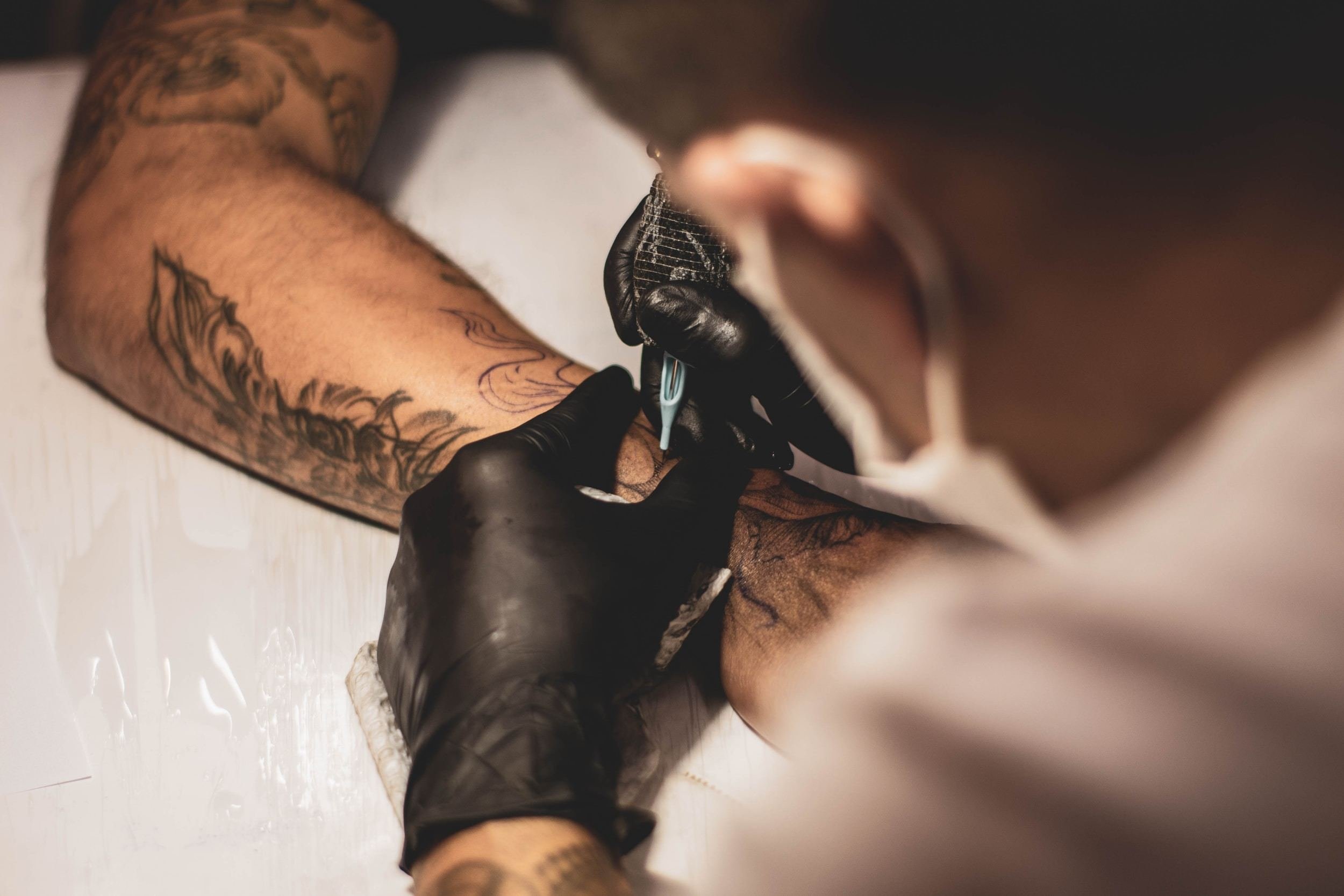The history of body art and tattooing is rich and varied, with evidence dating back to ancient civilisations worldwide, from the intricate patterns and designs of indigenous cultures to the bold and colourful designs of modern tattoo culture. Tattooing has evolved and adapted to become a popular form of self-expression and body modification.
The earliest evidence of tattooing dates back to the Neolithic period, around 4000 BCE. Tattoos were found on the bodies of mummies in ancient Egypt, as well as on the bodies of ancient Greek, Roman, and Celtic cultures. In these ancient societies, tattooing was a symbol of status or wealth.
In many ancient cultures, tattooing was connected to spiritual and religious beliefs. In Polynesian culture, tattoos were viewed as a means of communicating with the gods and establishing a person’s place within the community.
In Hindu culture, tattoos were often used for religious devotion or to mark important life events, such as marriage or childbirth. As tattooing spread from one culture to another, it began to take on new meanings and forms. In the late 19th and early 20th centuries, tattooing became popular among sailors and other travellers, who used tattoos to mark their adventures and demonstrate their membership in a particular community. During this time, tattooing also gained a reputation as a taboo practice associated with criminal activity and social deviance. This reputation persisted for much of the 20th century, with tattoos often seen as a sign of rebellion or nonconformity.

In the 20th century, tattooing began to gain mainstream acceptance. With the rise of counter-cultural movements, such as the punk and grunge scenes, tattoos became more widely accepted as a form of self-expression.
Today, tattoos are commonly accepted in many parts of the world and are no longer seen as a sign of social deviance. Modern tattoo culture is a diverse and vibrant community, with tattoo artists drawing inspiration from a wide range of sources.
From traditional tribal designs to contemporary minimalist styles, a tattoo style suits every taste. Tattooing has evolved significantly from its origins in ancient civilisations.
Today, it is a widely accepted and respected form of body art that continues to evolve and adapt, reflecting the times. Whether you are looking for a small and subtle tattoo or a bold and colourful statement piece, there is a tattoo for you.
Body Art:Should Minors Be Able To Get Tattoos?
In many countries, it is legal for minors to get tattoos with the consent of a parent or guardian. However, laws regarding children and tattoos vary by location and can be complex. In some places, it is illegal for anyone under 18 to get a tattoo, regardless of whether parental consent is obtained.
This is because tattoos are considered a form of permanent body modification, and minors are not considered to have the legal capacity to make decisions about their bodies. In these cases, a tattoo artist may face legal consequences for tattooing a minor without the proper consent. In other places, it is legal for minors to get tattoos with the permission of a parent or guardian.
However, there may be age restrictions, such as requiring the child to be at least 16 years old. There may also be additional requirements, such as the parent or guardian being present during the tattooing process or the tattoo artist verifying the identity of both the minor and the parent or guardian. Minors need to understand the potential risks and consequences of getting a tattoo.
Tattoos can be painful and can result in infection or other complications if not performed safely. In addition, tattoos are permanent and can have social and employment consequences if they are visible or considered inappropriate by some people. Minors should carefully consider their decisions before getting a tattoo and ensure they are fully informed about the risks and responsibilities associated with it.
Body Art: Is there any universal ban on tattoos?
There is no universal ban on tattoos, but some countries and jurisdictions have regulations or restrictions on tattooing. For example, in some countries, tattoos are prohibited in specific locations, such as on the face or neck, or in certain professions, including the military or law enforcement. In other countries, age restrictions on getting a tattoo or certain types may be prohibited.
It is essential to be conscious of the laws and regulations in the place where you are considering getting a tattoo, as well as the cultural attitudes towards tattoos in that region. Some people may have negative attitudes towards tattoos.
Respecting these attitudes and considering the potential consequences of getting a tattoo, such as difficulties finding employment or being accepted in specific social settings, is essential.
Tattoo removal is expected to be a lucrative business within the next 5-10 years.
It is hard to predict the future of any particular business with certainty. Still, tattoo removal is likely to remain a lucrative market for the next 5-10 years.
Many people regret getting tattoos and may seek tattoo removal services to have them removed or faded. Additionally, as tattoo removal technologies continue to improve, the demand for these services is likely to increase.
However, it is also essential to consider other factors that could impact the success of a tattoo removal business, such as competition, shifts in consumer preferences, and economic conditions.
You may like to read.
Starting your day with gratitude can boost your mood instantly – click here.
A strong work-life balance helps prevent burnout and increases productivity – know more.
Mindful living encourages you to appreciate the present rather than worry about the future – discover more.
Minimalism in your home can create a sense of peace and simplicity – learn mor.e
Consistent morning habits can transform your routine and energise your whole day – find out how